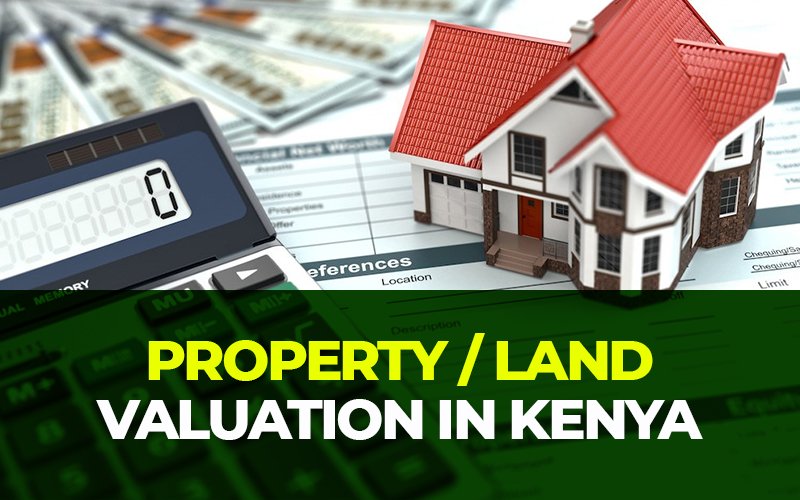How is Property Valuation for Land Determined in Kenya? A Comprehensive Guide
Property valuation for land is a critical aspect of real estate transactions in Kenya. Whether you’re a buyer, seller, investor, or simply curious about the valuation process, understanding how property valuation is determined can provide you with insights to make informed decisions. This comprehensive guide will walk you through the various aspects of property valuation for land in Kenya, shedding light on the methods, factors, and professionals involved.
How is Property Valuation for Land Determined in Kenya?
Property valuation for land in Kenya is a meticulous process that involves several factors and methodologies. Understanding these factors can help you gauge the market value of a piece of land accurately. Here’s a breakdown of the key elements:
Location,
The location of a piece of land plays a pivotal role in determining its value. Proximity to amenities such as schools, hospitals, transportation hubs, and commercial centers significantly impacts the land’s value. Prime locations in urban areas with good infrastructure tend to have higher valuations due to the convenience they offer.
Land Size and Shape
The size and shape of the land are fundamental aspects affecting its valuation. Larger parcels of land generally command higher prices, but irregular shapes or parcels with unusable portions can negatively impact the value. A well-proportioned and easily accessible piece of land typically holds more value.
Zoning and Land Use
Zoning regulations and permitted land use also influence property valuation. Lands designated for residential, commercial, or industrial use are valued differently. Compliance with zoning regulations and the potential for future development can drive up the land’s worth.
Market Trends and Demand
Current market trends and demand for land in a particular area are crucial considerations. An area experiencing high demand due to economic growth, population influx, or development projects will likely have higher land values. Conversely, areas with low demand may have lower valuations.
Infrastructure and Access
The availability of basic infrastructure, such as roads, electricity, water supply, and sewage systems, affects the value of land. Easy access to these amenities enhances the land’s usability and attractiveness, leading to a higher valuation.
Comparable Sales (Comps)
Real estate professionals often rely on comparable sales data to assess the value of a property. They analyze recent sales of similar lands in the same vicinity to determine a fair market value. Adjustments are made based on differences in factors like size, location, and amenities.
Income Potential
For commercial or income-generating properties, the potential revenue they can generate plays a vital role in valuation. Factors such as rental income, lease terms, and occupancy rates influence the land’s value.
Expert Appraisal
Property valuation experts, known as appraisers, play a significant role in determining land values. They consider all relevant factors, inspect the land, and use their expertise to arrive at an accurate valuation. Appraisers follow established methodologies to ensure consistency and objectivity.
Government Regulations and Policies
Government regulations, taxes, and land policies can impact property valuation. Changes in regulations or tax structures can influence the land’s value, making it essential to stay informed about legal aspects affecting land valuation.
FAQs
Q:Can I conduct a property valuation on my own?
A: While you can gather information about the factors mentioned, professional appraisers have the expertise to provide accurate valuations considering all aspects.
Q:Are there online tools for property valuation?
A:Yes, some online tools offer estimates based on available data, but they may not provide the accuracy and depth of analysis that professional appraisers can offer.
Q:How long does the property valuation process usually take?
A:The duration varies depending on the complexity of the property and the availability of data. It can range from a few days to a few weeks.
Q:What role do property developers play in land valuation?
A:Property developers often assess land for development potential and consider factors like location, zoning, and market demand to determine the land’s value.
Q:Can property valuation reports be contested?
A: Yes, if you believe there are errors or omissions in the valuation report, you can provide additional information to the appraiser and request a reassessment.
Q:How can I use property valuation information as a buyer or investor?
A:Property valuation insights help you make informed decisions when purchasing, selling, or investing in land. It ensures you’re paying a fair price or assessing the potential return on investment accurately.
Conclusion.
Property valuation for land in Kenya involves a comprehensive assessment of various factors, including location, size, land use, market trends, and more. Professionals such as appraisers contribute their expertise to ensure accurate and reliable valuations. As a key element in real estate transactions, understanding the property valuation process empowers buyers, sellers, and investors to make well-informed choices. By considering the multifaceted aspects that influence land values, you can navigate the real estate landscape with confidence.





